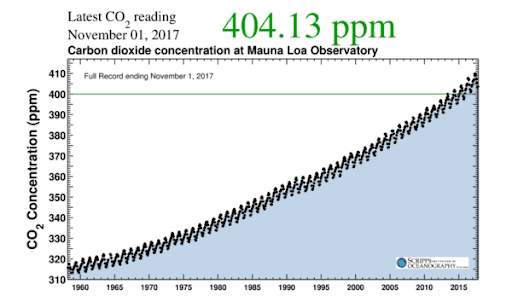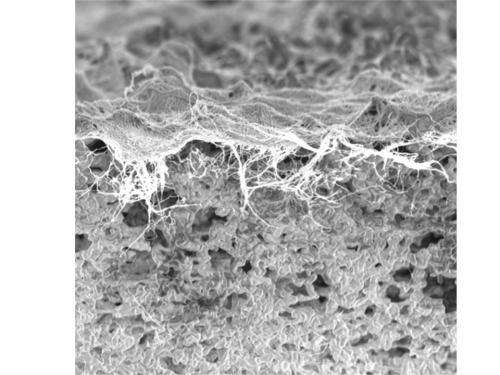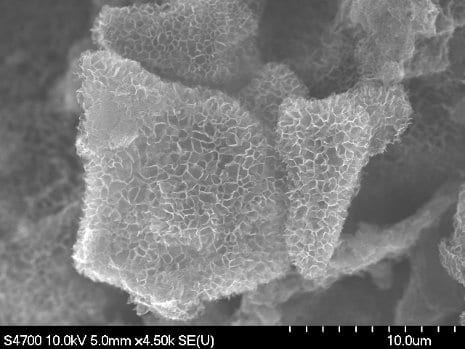 IN 1982, polls showed that 44 percent of Americans believed God had created human beings in their present form. Thirty years later, the fraction of the population who are creationists is 46 percent.
IN 1982, polls showed that 44 percent of Americans believed God had created human beings in their present form. Thirty years later, the fraction of the population who are creationists is 46 percent.
In 1989, when “climate change” had just entered the public lexicon, 63 percent of Americans understood it was a problem. Almost 25 years later, that proportion is actually a bit lower, at 58 percent.
The timeline of these polls defines my career in science. In 1982 I was an undergraduate physics major. In 1989 I was a graduate student. My dream was that, in a quarter-century, I would be a professor of astrophysics, introducing a new generation of students to the powerful yet delicate craft of scientific research.
Much of that dream has come true. Yet instead of sending my students into a world that celebrates the latest science has to offer, I am delivering them into a society ambivalent, even skeptical, about the fruits of science.
This is not a world the scientists I trained with would recognize. Many of them served on the Manhattan Project. Afterward, they helped create the technologies that drove America’s postwar prosperity. In that era of the mid-20th century, politicians were expected to support science financially but otherwise leave it alone. The disaster of Lysenkoism, in which Communist ideology distorted scientific truth and all but destroyed Russian biological science, was still a fresh memory.
The triumph of Western science led most of my professors to believe that progress was inevitable. While the bargain between science and political culture was at times challenged — the nuclear power debate of the 1970s, for example — the battles were fought using scientific evidence. Manufacturing doubt remained firmly off-limits.
Today, however, it is politically effective, and socially acceptable, to deny scientific fact. Narrowly defined, “creationism” was a minor current in American thinking for much of the 20th century. But in the years since I was a student, a well-funded effort has skillfully rebranded that ideology as “creation science” and pushed it into classrooms across the country. Though transparently unscientific, denying evolution has become a litmus test for some conservative politicians, even at the highest levels.
Meanwhile, climate deniers, taking pages from the creationists’ PR playbook, have manufactured doubt about fundamental issues in climate science that were decided scientifically decades ago. And anti-vaccine campaigners brandish a few long-discredited studies to make unproven claims about links between autism and vaccination.
The list goes on. North Carolina has banned state planners from using climate data in their projections of future sea levels. So many Oregon parents have refused vaccination that the state is revising its school entry policies. And all of this is happening in a culture that is less engaged with science and technology as intellectual pursuits than at any point I can remember.
Thus, even as our day-to-day experiences have become dependent on technological progress, many of our leaders have abandoned the postwar bargain in favor of what the scientist Michael Mann calls the “scientization of politics.”
The Latest Bing News on:
Age of Denial
- UNHRC expresses concern on denial of freedom of peaceful assembly IIOJKon April 27, 2024 at 4:10 am
The delegation, comprising of Syed Faiz Naqashbandi, Hassn ul Banna, Advocate Parvez Ahmad Shah and Barrister Nida Salam apprised the Special Rapporteur regarding denial of freedom of peaceful ...
- HUD Attorney Advances Some Bias Claims in Promotion Denial Caseon April 25, 2024 at 10:55 am
A US Department of Housing & Urban Development attorney can pursue some allegations that age and sex bias played a role in the agency’s decision not to promote her, but other claims fall short, a ...
- The denial of Palestinian childhoodon April 24, 2024 at 6:11 pm
This analysis explores how systemic dehumanization of Palestinian children by Israeli forces mirrors racial injustices against Black children in the US, highlighting the role of Western media biases ...
- Male infertility contributes to about 40% of cases of infertility. What to do about iton April 24, 2024 at 7:33 am
Why are some men in denial? I think the possibility that the man could have ... based on the time it may take for healthy couples when the woman is under age 35. When the woman is over age 35, couples ...
- When does old age begin? How increased longevity tricks seniors into thinking they’re still youngon April 23, 2024 at 7:15 pm
On average, the 25-year-olds declared that old age began when someone turned 66. The drastic eight year gap between responses highlights how differently the generations perceive the aging process.
- TikTok Star Eva Evans Dead at 29, Sister Reveals: 'Still Find Myself in a Constant Cycle of Denial'on April 22, 2024 at 8:30 am
TikTok star Eva Evans' sister Lila announced her death on Sunday, April 21 in a post shared on Instagram. Evans, who was 29, also directed and starred in the Amazon Prime series 'Club Rat.' ...
- TikTok star, ‘Club Rat’ creator dies at age 29on April 22, 2024 at 5:11 am
Evans had over 300,000 TikTok followers. Her videos offered advice and humor about living as a twentysomething woman in the Big Apple.
- TikToker Eva Evans, creator of ‘Club Rat' series, dead at 29on April 21, 2024 at 11:06 am
Eva Evans, a TikToker and creator of the web series “Club Rat,” passed away at age 29, her sister announced April 21.
- Breaking Down Taylor Swift’s ‘Denial’ Playlist: ‘I Love You, It’s Ruining My Life’ Songs Linked to Joe Alwynon April 19, 2024 at 8:58 am
A solid number of the new tracks seem to fit the denial phase. “imgonnagetyouback” is now the first song with “I Hate It Here” coming next. “The Bolter,” “Robin,” “My Boy Only ...
- 'I was in denial' - Meg Lanning reveals health battle that caused her international retirementon April 17, 2024 at 4:57 pm
Former Australia captain says an unhealthy imbalance between obsessive exercise and not eating enough meant she was not cut out for international cricket any more ...
The Latest Google Headlines on:
Age of Denial
[google_news title=”” keyword=”Age of Denial” num_posts=”10″ blurb_length=”0″ show_thumb=”left”]
The Latest Bing News on:
Climatology
- 6.1 magnitude earthquake rattles Indonesia's Java islandon April 27, 2024 at 4:12 pm
A magnitude 6.1 earthquake shook the southern part of Indonesia's main island of Java on Saturday, but there were no immediate reports of injury or significant property damage. The U.S. Geological ...
- Earthquake Of 6.5 Magnitude Hits Indonesia, No Tsunami Alert Issuedon April 27, 2024 at 3:44 pm
An undersea quake with a magnitude of 6.5 jolted Indonesia's West Java province on Saturday night, without triggering giant waves, the country's meteorology, climatology and geophysics agency said.
- Magnitude 6.5 Earthquake Strikes Off Indonesia's Java Island: Authoritieson April 27, 2024 at 1:43 pm
A magnitude-6.5 earthquake struck off the coast of Indonesia's Java island on Saturday, the country's Meteorology, Climatology, and Geophysical Agency (BMKG) reported.
- Magnitude 6.5 earthquake strikes off Indonesia's Java islandon April 27, 2024 at 10:18 am
A magnitude-6.5 earthquake struck off the coast of Indonesia's Java island on Saturday, the country's Meteorology, Climatology, and Geophysical Agency (BMKG) reported. The quake, which BMKG said ...
- BREAKING NEWS! Magnitude 6.5 Earthquake Shakes Garut East Java, Felt Up to Jakartaon April 27, 2024 at 10:04 am
NATURAL DISASTER/ EARTHQUAKE - JAKARTA. A 6.5 magnitude earthquake rattled the district of Garut in West Java on the evening of Saturday, April 27, 2024. Initial reports from the Meteorology, ...
- Earthquake Today: Magnitude 6.5 quake strikes off Indonesia’s Java islandon April 27, 2024 at 10:02 am
The quake, which the United States Geological Survey recorded at a magnitude of 6.1, was felt in capital Jakarta -- where people were forced to evacuate buildings -- and in nearby Bandung ...
- Weather Wonders: Iowa's Tornado Climatologyon April 26, 2024 at 5:00 pm
With a general background knowledge on the EF-Scale, let's take a look at some of the tornado climatology across the state of Iowa as we enter into the more active months. The data that you will see ...
- Texas is going to keep getting hotter, new climatology report showson April 24, 2024 at 2:32 am
Researchers at Texas A&M University analyzed historic observations of temperature, precipitation and more and identified ongoing and likely future trends.
- Texas is going to keep getting hotter, new climatology report showson April 23, 2024 at 10:16 am
AUSTIN, Texas — Texas is going to get hotter and drier over the next 12 years, according to a new climatology report from researchers at Texas A&M University. The new report, published by A&M's ...
The Latest Google Headlines on:
Climatology
[google_news title=”” keyword=”climatology” num_posts=”10″ blurb_length=”0″ show_thumb=”left”]









